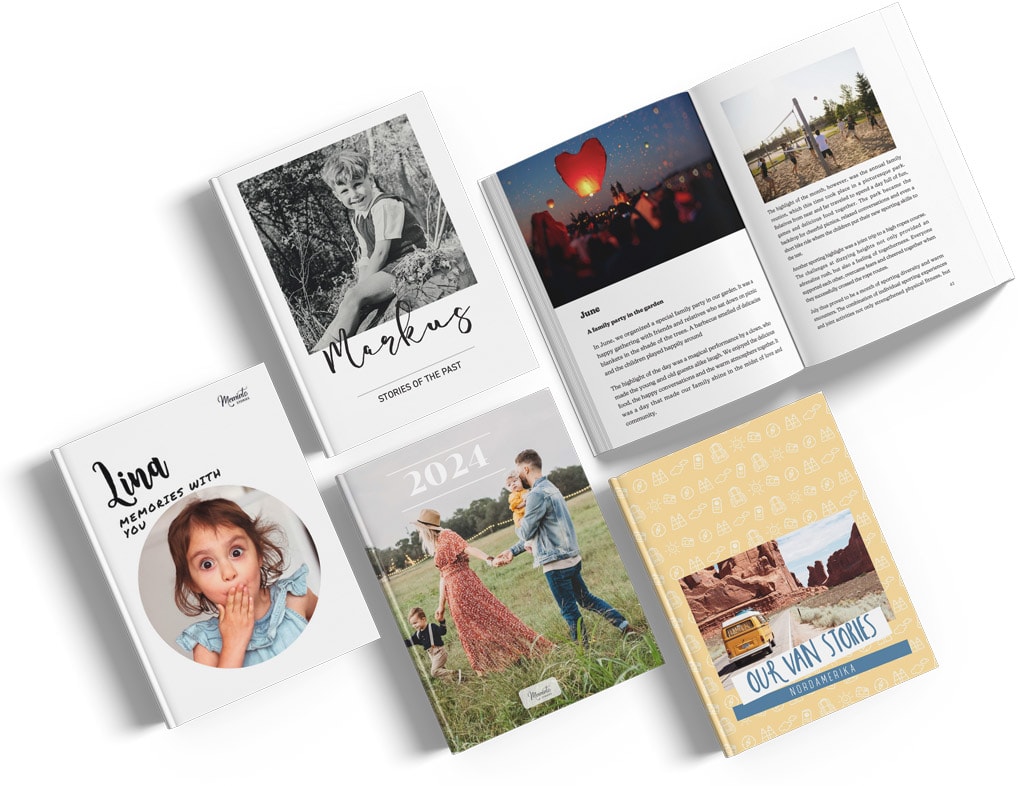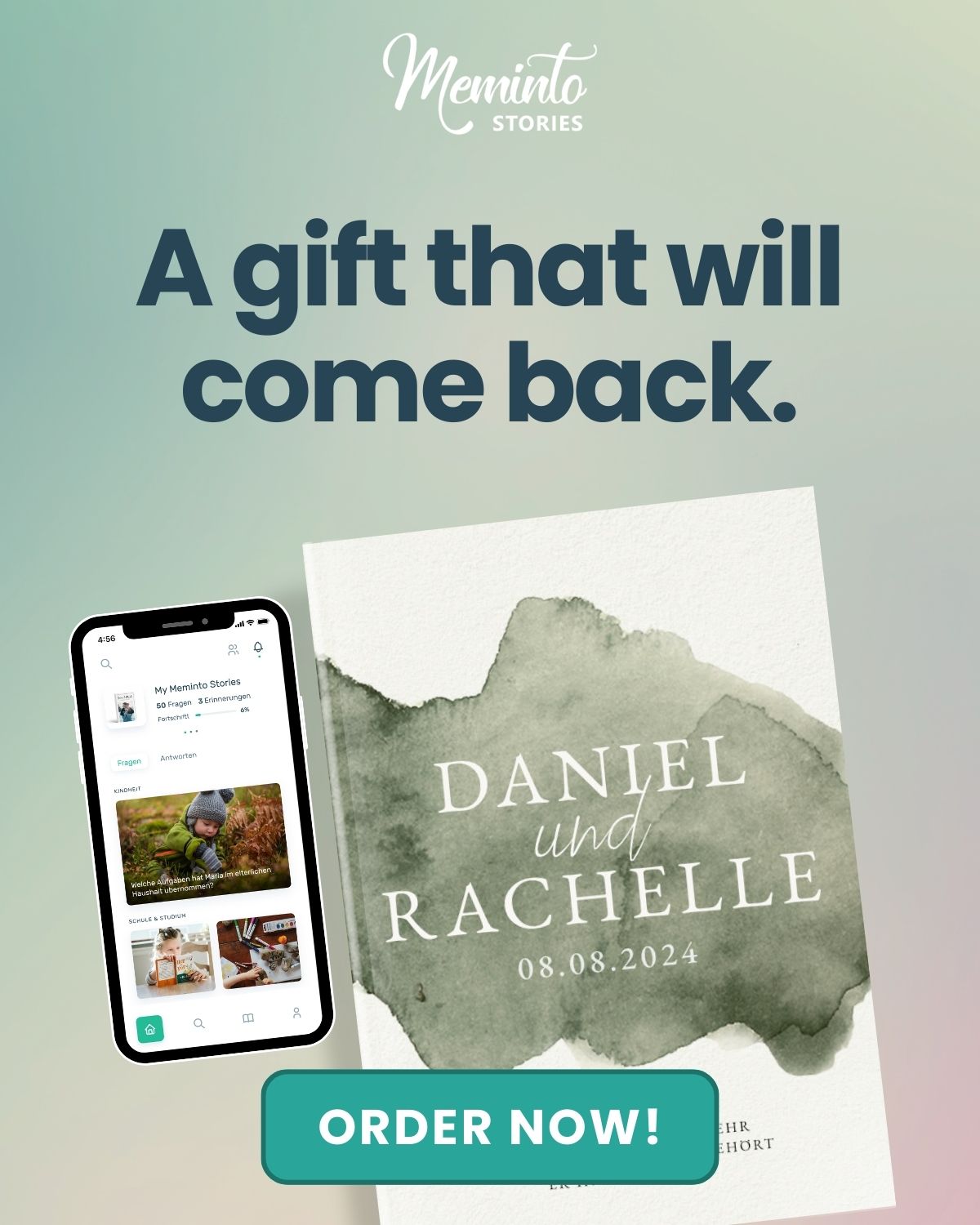Journal prompts for memoirs are questions or topics that make people think about important events, feelings, and life experiences. They should create an atmosphere of creativity and guide the writing process.
Writing a memoir is like writing a book about your life. It is personal because it includes information about you and your family. However, be cautious of the parts you want to share with others. Select only the most important moments of your life that you are comfortable with people knowing about. Choose events that will catch the attention of those who read them. Unlike biographies, memoirs aren’t necessarily arranged in any specific order or follow a strict timeline; feel free to jump around between key moments. Also, remember that not everything has to be included here; this should be treated as an opportunity for reflection rather than an exhaustive account listing everything that ever happened to you.
A memoir must grab the reader’s attention from the first word they read until they reach the last one. Selecting what memories should be included in a memoir can pose a challenge. That’s why we’ve compiled 100 prompts for you to help brainstorm ideas for your memoir. Whether you want to communicate a life lesson learned, talk about someone who influenced you greatly, or discuss your family’s past, these will get your creative juices flowing!



Key takeaways
- Sharing personal stories is the key to writing a memoir, so choosing topics that are close to you and your readers’ hearts is important. Examples of subjects that could be used include childhood memories, overcoming challenges, travel adventures, relationships, professional life, personal growth, cultural insights, unique experiences, education, and everyday moments.
- Use prompts to generate ideas and inspire your writing process. Reflect on the selected prompts and let memories, feelings, and lessons learned surface. Write without thinking about sentence correctness or structure, but concentrate on expressing yourself honestly.
- However therapeutic it may be, you should not share too much personal information while writing a memoir because it could hurt other people’s reputations. Instead of creating trouble for no reason, entertain or educate your readers, keeping privacy in mind.
100 Journal Prompts for Memoir Writing
- Write about a difficult time and how you got through it.
- Talk about how you care for your mind and why it’s important.
- Write about how having brothers or sisters, or being the only child, affected you when you were young.
- What things were important to you when you were a kid?
- How did you meet your friends when you were a teenager, and what does this say about you?
- Write about a time when you felt like everything was going wrong but kept going.
- Talk about a big fight you had with one of your parents. How did it end?
- Did you lose a parent? How did it happen, and how did it change things for you?
- What was your first job like? What stands out most in your memory?
- What did you do with the money you earned from that job?
- How do you feel about holidays?
- What are your strong beliefs, and how do they affect what you do daily?
- What are some important things you wish you knew when you were younger?
- Discuss a time when you felt lost and how you found hope.
- Where is your favorite place to travel, and why do you like it?
- What leadership skills did you pick up from your caregivers, and are you happy with them or trying to learn better ones?
- What did you learn about love after your biggest loss?
- Have you ever been part of a group? Tell us about your most memorable experience with them.
- Talk about your experience with a natural disaster, like an earthquake or a hurricane.
- How was your first year of marriage with your current partner? Share the ups and downs.
- How do the people with whom you spend most of your time affect your daily life?
- What did your childhood pet teach you about caring for others?
- Would you like to see someone from your past again?
- Did you have a past love? Describe them, including how you lost them.
- Share a moment when you embarrassed yourself and what it taught you.
- What’s something you wish you had learned as a child?
- Talk about a relationship that changed you for the better, whether it was toxic or healing.
- Discuss an odd habit a friend or family member has that you find funny.
- Describe a big change in your life. How did you handle it, and what did you learn?
- Talk about a time when you were addicted to something.
- Talk about a time when you felt close to your mom or dad.
- Share a story about why you had to end a relationship with someone important to you.
- Talk about a time when your grandparents taught you something important.
- Who are your favorite famous people, and how do they affect your life?
- What would make you happy, and how did you feel when you got it?
- Describe your best friend and how you became friends.
- What scares you the most, and what can others learn from how you deal with fear?
- Did you have a bully in your school? Talk about the worst thing they did and how it affected you.
- What guides your daily choices—fear, courage, or something else? Why?
- Who’s the most interesting person you’ve ever met?
- When did you realize you were becoming an adult?
- What has taught you the most about yourself and the people around you?
- How has becoming more independent or relying on others changed you?
- Explain why you feel it’s important to write your memoir.
- Write about the people who have influenced you the most and how they’ve shaped your life.
- If you could trade lives with someone, what would they learn from your decisions?
- Write about your biggest lesson and how others can learn from your experiences.
- Describe a scary event that helped you grow.
- Share your favorite memory from a vacation.
- Talk about where you thought you’d be, where you are, and how you feel about it.
- Think about what you want for your future.
- Which historical event has changed how you live today? Explain how to keep moving forward.
- Where would you go and why if you had to move to a new city?
- Describe your ideal friend.
- What does success mean to you?
- Who do you look up to?
- Imagine meeting a younger version of yourself. What do you think of each other, and what advice would you offer?
- Write about what you learned from starting over.
- When did you wish you could start again, and why?
- How does your childhood affect the choices you make now?
- Share a success you had when you were younger and what it taught you.
- What’s a big decision you made that you would regret if you hadn’t?
- If you could tell your younger self one thing, what would it be and why?
- Think about a big decision you had to make. What did you choose, and how do you feel about it now?
- Share your biggest regret.
- Talk about a time when someone treated you differently because of your gender.
- What skill are you proud of, and how did you get good at it?
- Describe your favorite toy from when you were a kid and share a special memory with it.
- Is there a family secret you wish you didn’t know? What is it, and why?
- If you’re part of the LGBTQ+ community, talk about how you figured out your sexuality.
- Have you ever had a supernatural experience?
- Share a special memory with your mom or dad.
- Talk about what it was like growing up with strict or very religious parents.
- Describe the worst pain you’ve ever felt, along with what happened.
- How have your political beliefs changed since you were a teenager?
- Ask someone else to describe you in three words. How does it correspond to how you see yourself? What do you keep private, what do you share, and why?
- Have you ever protested for something you believe in? Would you do it again?
- How has technology changed your life over the last ten years?
- Does your job make you happy, or has it caused problems for you and your family?
- Are you an expert in something? Do you collect things or have unusual hobbies? Have you ever been in space or had trouble with the law?
- Talk about your relationship with your brothers and sisters.
- Do you remember a time when you had a big breakdown? What happened before that?
- Write about the funniest thing you’ve ever seen.
- Discuss when you felt like you’d already experienced something, like deja vu.
- Describe your childhood bedroom in detail.
- Have you ever been betrayed, or have you betrayed someone else? How did it feel? Did you regret it, or did it feel like the right thing to do? Did it change your life in some way?
- Share a time when you felt betrayed. What did you do, and how did you handle it?
- If you have been through traumas or illnesses, talk about how you got them and recovered.
- What were you afraid of when you were a kid, and why? Are you still scared of it now?
- Write about a time when you were scared to do something but did it anyway.
- How was your first date? What’s your idea of a perfect first date?
- What are the three things people always say about you? Why do you think they say those things?
- What’s your biggest insecurity, and why do you have it? What are you doing to try to overcome this?
- Write about a time when you won something.
- Talk about your first heartbreak, whether because of a past relationship or a failed project.
- What’s something you believed in as a child or teenager that you still believe in now?
- What’s something you used to believe in but don’t anymore?
- Do you still feel bad about things you believed in but don’t anymore?
- What do you think you’re good at, and why does it matter?
- What makes your family special? What are you most proud of when you think about them?
What are good topics for a memoir?
After generating a list of prompts to start your memoir writing, you may wonder which topic to choose. Here are some suggestions for good memoir topics:
- Childhood memories: Think back on your early years—climbing trees, experiencing first heartbreaks at school—your childhood is rife with tales as yet untold. You could read old diaries for ideas, too!
- Overcoming challenges: Have there been times when things got really hard? Have you faced challenges such as illness or financial difficulties? Telling the story of how you overcame these obstacles might just inspire someone going through something similar.
- Travel adventures: Can you recall any particularly thrilling journeys? For instance, can you imagine exploring Europe on a backpack or finding yourself lost in a bustling foreign bazaar? Such travelogues transport readers into different cultures and places.
- Relationships: Look back on romantic and platonic love and family dynamics; what lessons did people teach, leave behind, or learn from one another?
- Professional life: If your career has been interesting or has had twists and turns along the way, share it! Such stories could provide insights into areas others don’t know much about, broadening their understanding and giving them reasons to pursue their work dreams.
- Personal Evolution: Have you ever wondered a lot about yourself—those times that you were spiritually filled, lost weight, or even engaged in new activities? Revealing these individual changes could be very impactful.
- Social Understanding: Present to the readers a part of the world they have never seen by telling them about historical events you have survived or the diverse cultures that you come from.
- Exceptional Encounters: Participating in activities not common among many people, like being a member of a particular community or involving oneself in things like triathlon training, can be shared here.
- Knowledge: Share your life after deciding to study again at different institutions and places of learning. Your experience might motivate others to make similar decisions.
- Daily Life: It’s important to include common events such as cooking together with family members and personal meditation moments. These points make memoirs more touching.
How to Use Memoir Writing Prompts for Your Book
Memoirs are always based on self-discovery and sharing your unique life story.
Nobody else can do it for you. However, what they can do is give you tools that will help you make your writing better. For example, exploring different book topics or using prompts to generate new ideas. Whether a list of prompts or memoir writing prompt generators, here are tips on making them work best in your writing.
- Choosing a Prompt: Start by selecting a memoir writing prompt that resonates with you or relates to the theme or aspect of life that you would like to explore in your memoir. If using the prompt generator, input the book genre and give more details about yourself to get unlimited tailored prompts based on interests.
- Reflecting: Take some time to think deeply about what has been given as the topic and then relate it to your personal experience(s). Look at the emotions involved, the memories attached, and the lessons learned from those events and situations. So, think about how they have shaped the way we see things today.
- Free Writing: Start free writing after selecting and reflecting on one prompt. Allow yourself to write without caring about grammar, structure, or editing while letting ideas flow naturally from your mind onto paper, capturing every memory or feeling that comes out during this process.
You can use tools like Meminto to kickstart the writing process. If you want to learn how to write a memoir even with Meminto for a streamlined process, check out our article on “How to Write a Memoir.”
- Emphasize learning moments: After your initial writing session, revisit your work and focus on the moments where you learned something significant. These are the moments that others can benefit from reading about and learning from. Expand upon these moments to provide depth and insight into your experiences.
- Exercise caution with personal details. While memoir writing can be therapeutic, remember that your purpose is to entertain or educate your readers. Since strangers will be reading your memoir, avoid oversharing deeply personal information or making claims against others that could harm their reputation.
- Repeat the process: Use different writing prompts for memoirs to write about your life. Eventually, these pieces can be combined to form a complete story that shows all the events and emotions you have experienced.
How to Use Journaling Prompts for Memoir Writing With Meminto
Now that you have the prompts to get you started with journaling, here’s a step-by-step guide on how you can use Meminto to start journaling:
How to Document your Personal Experiences
With the journal prompts above, you can document your personal experiences. Tools like Meminto can help you when you’re writing down your experinces so you can have a physical and digital copy.
Here’s a step by step guide on how to use Meminto:
- Go to https://meminto.com/product/life-book/ and click “Get Started.”
- Select whether the book is for you (“I will”) or someone else (“Someone else will”).
- You can choose the number of pages for your book and whether you want extra or digital copies. Then, click “Add to Cart.”
- Enter your shipping address and payment information, and use a promo code if you have one.
- Review your order on the checkout page and confirm it.
- Check your email for a confirmation message with an activation code. Copy the code and visit https://memin.to/register.
- Fill out the registration form with your details, activation code, and password. Click “Sign up for Meminto” to start creating your story.
- Choose your language (German or English), select the day you want to receive weekly questions, and click “Save Changes.”
- Select the typographic alignment and category presentation for your book.
- Customize the book to your liking.
- Watch the video below for more information on using the Meminto app.
You are currently viewing a placeholder content from YouTube. To access the actual content, click the button below. Please note that doing so will share data with third-party providers.
More Information
Conclusion
These memoir-writing topics should give you plenty of ideas. Once you have them, write them down. Writing will help you realize which memories are important and which ones aren’t. It will also make the process more enjoyable for you.
While challenging, knowing what you want to achieve with your memoir makes writing easier.
Have fun with these writing exercises! Remember to focus on editing, too—trust me, your readers will appreciate it.



























